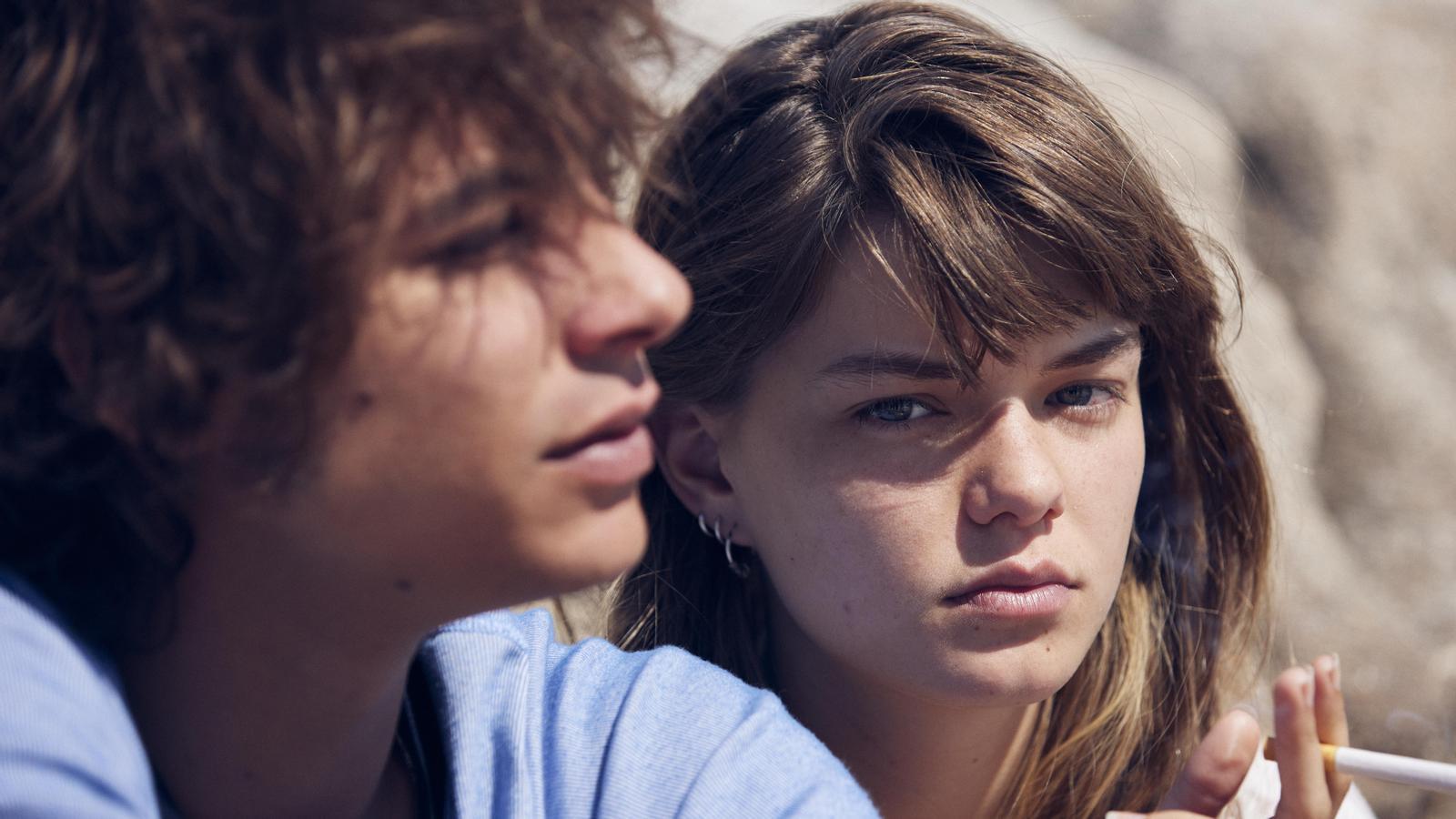'Romería': The film that reveals Carla Simón as a great director of sensuality
The feature film that closes the filmmaker's family trilogy opens the doors to explore new and stimulating territories.

- Direction and script: Carla Simón
- 114 minutes
- Spain and Germany (2025)
- With Lucía Garcia, Mitch and Tristán Ulloa
In Lagoons, a short film prior to Summer 1993 (2017), Carla Simón recovers the letters and some videos of Neus Pipó, her mother, while traveling through the landscapes she traveled through decades before. The film ends at the Hospital del Mar, with the camera focusing on the horizon while we hear Neus's last wishes, who before dying names her brother as legal guardian of her daughter Carla. The beginning of Pilgrimage connects with that ending to fill in some of these gaps. Marina (Llúcia Garcia), a young audiovisual communication student, travels by sea from Barcelona to Galicia to obtain official recognition from her paternal family. The diary she wrote to her mother about her stay there serves as a guide.
With PilgrimageCarla Simón continues the path initiated in her previous films regarding cinema as a territory for reconciling with family memory, here, that of her parents who died so young from AIDS. We accompany Marina on her journey of discovery of her paternal family and the places where her parents were happy, but also where they became addicted to heroin. Summer 1993, the director presents the experience of living without biological parents. But here, it's not from the perspective of a child marked by their absence, but rather from the perspective of an adult who wants to understand young people her age, whose lives were cut short prematurely. And as Alcarràs (2022), Simón constructs an ensemble family drama featuring diverse characters, from the patriarchal grandfather who solves everything with money to the uncle who always speaks frankly. Marina's gradual acquaintance with her uncles, aunts, and elderly couple adds layers of complexity to this family story marked by a stigma—that of AIDS—which has become a taboo that is never discussed.
When Pilgrimage Just as it runs the risk of stagnating as a drama of secrets and lies surrounding a bourgeois family with a rebellious cleanup, a cat makes an appearance that we have already seen before on the boat where Marina's parents lived (pay attention to the many details that pepper the film like pebbles to follow a new path). Like the rabbit inAlice in Wonderland, the feline leads the protagonist to the other side of the mirror, passing through one of the spaces in her mother's memory, the comic book store where she worked as a young woman. Then Pilgrimage It explores new territory in Carla Simón's cinema, closer to the fantastic and surreal, without completely abandoning naturalistic codes. In the manner of Petite Maman (2021), Céline Sciamma's best work, the film enters a new dimension in which a daughter and a mother coincide as girls of the same age, allowing the former to imagine the latter's love and death story with her father.
The director distances herself from the sordid and depressing imagery associated with the youth of the eighties, victims of drugs and AIDS, to remember how they were also the generation that embraced a liberating concept of life after decades of repressive darkness. And so she represents her parents, as a couple who escape to an island conceived as an Edenic territory where everything can start again. The escape closes with a choreography to the rhythm of I will dance on your grave From Siniestro Total, in which the director encapsulates how a group of festive young people end up becoming members of the Santa Compaña, an exemplary poetic metaphor to capture the end of the hippie dream.
In this fantastic segment, Simón summons the resplendent seaside eroticism of Ingmar Bergman's Summer with Monika (1953), the rebellious spirit of Pierrot le Fou (1965) by Jean-Luc Godard but also the hippie imaginaries of Zabriskie Point (1970) by Michelangelo Antonioni and the forgotten More (1969) by Barbet Schroeder, filmed in Ibiza. Simón thus reveals herself as a great filmmaker of sensuality, a director who not only knows how to invoke emotional images but also fills the screen with the overwhelming eroticism of the bodies of the lead couple, newcomer Lucía García and musician Mitch, who convey a physical magnetism rarely felt in cinema. A sensation also generated, incidentally, by the other great Catalan film of the season, Strange river of Jaume Claret Muxart. So, Pilgrimage closes a trilogy that confirms Carla Simón as one of the great names in the contemporary film scene while leaving the door open to embarking on new paths.
